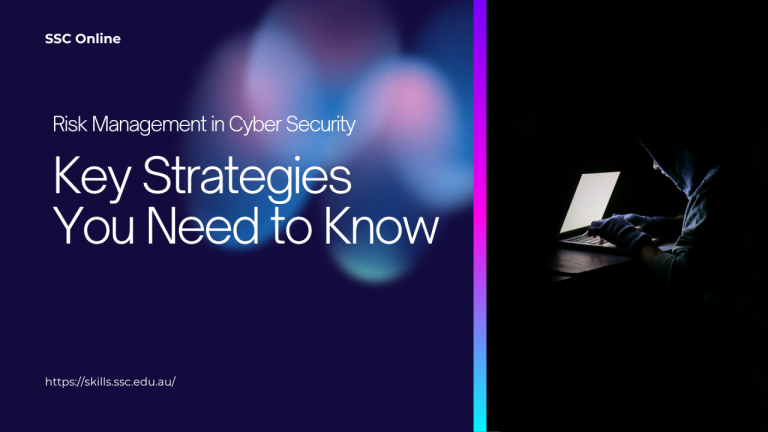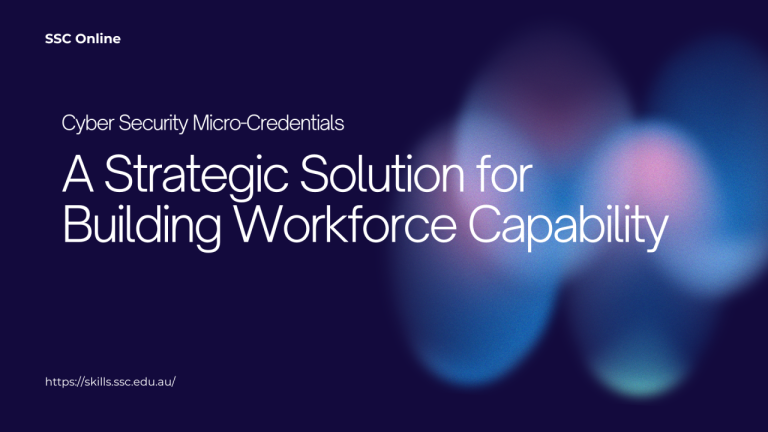The Cost of Capability Gaps
Most organisations don’t plan for the execution gap. They invest in new platforms, roll out systems, and expect performance to follow. But when digital capability falls short, progress stalls -not because the tools fail, but because people can’t use them well enough.
These gaps carry risk. Deadlines slip. Staff bypass systems they don’t understand. Security rules go unchecked. Errors creep into core processes. Even simple tasks drag when teams lack digital fluency.
This isn’t just an IT problem. Every function from marketing, finance, HR, operations – runs on digital infrastructure. When only the tech team can engage with it, the rest of the business slows down.
Why HR and Executives Must Lead the Response
Many HR and senior leaders still treat digital capability as a downstream concern. The assumption is that technical skills sit with the IT team, and that non-technical staff don’t need more than software basics. That view is no longer valid.
Today’s business environment demands a baseline digital fluency across functions. This doesn’t mean everyone needs to code. It means staff must understand the platforms they use, the systems that support them, and the risks tied to poor usage.
HR leaders are well placed to lead this shift. They control hiring plans, skills development, and training spend. Executives carry the risk when capability gaps affect delivery. Closing the gap between strategy and execution depends on both sides working in sync.
Digital Capability Is Not a One-Off Project
Workshops, generic e-learning, and expensive bootcamps often miss the mark. They tick a box but don’t shift capability at scale. The result? Short-term activity with little long-term impact.
Organisations need a different approach:
- Move from one-off training to continuous learning
- Shift from reactive upskilling to strategic capability building
- Replace siloed programs with workforce-wide digital fluency
Digital skills aren’t static. Tools change. Regulations shift. User habits evolve. Training models must match that pace: flexible, scalable, and built into day-to-day operations.
What Happens When Capability Gaps Are Ignored
- Operational Delays and Rework: Staff unfamiliar with tools or platforms take longer to complete tasks, create inefficiencies, or require support that slows down others.
- Compliance Breaches: Mishandled data, incorrect process flows, or failure to use mandated systems opens the door to regulatory risk.
- Project Failure or Scope Creep: Strategic initiatives often rely on cross-functional systems. If teams lack the skills to engage, timelines extend, costs increase, or goals shift.
- Low Software ROI: Enterprise platforms require high user adoption to justify spend. When uptake is poor due to capability gaps, investments fail to deliver returns.
- Security Exposure: Staff unaware of cyber hygiene, password protocols, or phishing indicators increase risk vectors -regardless of IT safeguards.
These are not minor issues. Overall, they stack up. Over time, they stall delivery, block innovation, and leave the business behind.
Why Traditional Training Models Don’t Work Anymore
Most in-house training still runs on old assumptions: long sessions, group delivery, fixed roles. That doesn’t match how people work today. Teams are distributed, multitasking, and constantly adapting. One-size-fits-all training can’t keep up.
Common breakdowns:
- Content is too broad or not role-specific
- Training happens once, then disappears
- Delivery is expensive and hard to scale
- Learning doesn’t track to changing job needs
Executives know the importance of scale, ROI, and adaptability. Training should reflect the same mindset. It needs to be aligned with real roles, delivered in a way that works across a workforce, and updated as demands shift.
How Subscription-Based Micro-Credentials Solve the Problem
South Sydney College’s subscription model offers a structured, flexible way to embed capability uplift across the workforce. Rather than purchasing fragmented short courses or trying to schedule full-day sessions, HR and executives get access to a curated library of micro-credentials, aligned with business needs.
Key features include:
- Always-on access: Staff can upskill at their own pace, without disrupting operations.
- Role-aligned content: Topics cover real business functions -data, digital marketing, cyber security, business analysis, project management.
- Stackable learning: Micro-credentials can contribute to formal qualifications, supporting longer-term workforce development goals.
- Simple cost model: Flat monthly subscription with the ability to scale across teams and departments.
This shifts training from a cost centre to a strategic investment -with measurable outcomes, usage tracking, and visible capability growth.
Strategic Benefits to the Business
Structured digital capability doesn’t just drive efficiency; it builds resilience, sharpens execution, and supports growth.
What it delivers:
- Faster project delivery
- Fewer compliance issues
- Higher staff confidence and engagement
- Less dependence on external help
- Stronger link between strategy and day-to-day capability
It also sends a clear message: the organisation is serious about staying relevant and competitive. Staff notice the investment. Clients notice the difference.
Where to Start
For HR and executives reviewing capability gaps, the next step isn’t a one-off training plan. It’s setting up the infrastructure for ongoing, job-relevant learning at scale.
Ask:
- Where are skills holding back execution?
- Which teams lean too heavily on workarounds or external support?
- How many staff use digital tools without any formal training?
- Do we have a clear, structured way to upskill across the business?
If the answers aren’t clear, or training is still treated as a side project, reset the approach.
From Skills Gap to Strategic Advantage
Digital capability is no longer just an HR or IT concern. It’s a core business risk therefore it needs to be managed like one.
Organisations that invest early, build structure, and embed learning into operations will move faster and execute better. Those that delay will keep paying the cost in rework, risk, and missed opportunities.
South Sydney College’s micro-credential subscriptions are built for this: practical, scalable, and made to support real workforce goals.
Explore the platform at skills.ssc.edu.au.
Skills SSC is South Sydney College’s platform for on-demand, stackable, accredited micro-credentials.




